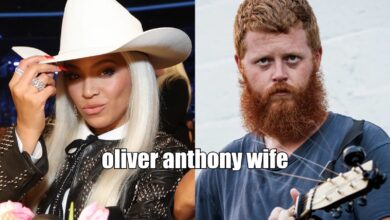Yuko Kubota: A Multifaceted Professional with a Global Perspective

Introduction to Yuko Kubota
When you hear the name Yuko Kubota, you may immediately think of professionalism, expertise, and versatility. She is a figure who has made a name for herself in various professional spaces, especially within the realms of journalism, international communication, and cross-cultural analysis. In today’s interconnected world, individuals like Kubota play an increasingly important role because they act as bridges between different societies, industries, and viewpoints.
What makes Yuko Kubota stand out is not just her career achievements but also her ability to adapt and thrive in diverse environments. Unlike many professionals who stay confined within one specific industry, Kubota has consistently demonstrated the flexibility to take on new roles and challenges. This adaptability allows her to remain relevant and influential in a constantly changing global landscape.
Understanding Yuko Kubota’s journey provides a deeper look into how hard work, vision, and cultural awareness can transform a career into something more than just a job. It turns it into a lifelong pursuit of meaningful impact.
Early Life and Educational Foundations

Every remarkable career begins with a foundation built in the early years, and Yuko Kubota is no exception. While not every detail of her childhood is widely publicized, it’s clear that her formative years instilled in her a deep appreciation for education, knowledge, and cultural diversity. Growing up in a setting where multiple perspectives could be explored likely shaped her interest in cross-cultural communication and storytelling.
Her educational background also played a huge role in developing her skill set. Academic pursuits provided Kubota with not only knowledge but also discipline and analytical thinking. In a world where communication and journalism require both sharp observation and critical interpretation, such an educational grounding became a valuable asset.
What stands out in Kubota’s academic journey is her determination to pursue excellence. Yuko Kubota She didn’t simply go through the motions of learning; she actively used her education as a tool to build a broader worldview. This academic rigor prepared her for the professional challenges she would later face in high-profile roles across journalism and international affairs.
Professional Journey in Journalism
One of Yuko Kubota’s most recognized professional arenas has been journalism. Journalism is not an easy field—it requires resilience, a strong ethical compass, and the ability to adapt quickly to fast-moving stories. Kubota thrived in this environment by combining her cultural insights with an exceptional ability to communicate ideas clearly and effectively.
She has worked with major international media outlets, which demonstrates both her credibility and the trust she has earned in the industry. In roles that required her to cover complex global issues, Kubota consistently delivered content that was not only factual but also insightful. Her reporting style often provided readers and audiences with more than just information—it offered perspective and understanding.
Beyond reporting, her work in journalism also reflects her role as a bridge between different audiences. Yuko Kubota By interpreting global events in ways that resonate with international readers, Kubota highlights the importance of context and nuance in communication. This is a skill that many journalists struggle to master, but it’s one that defines her success.
Transition into Strategic Communication
While journalism was a key part of Kubota’s journey, she didn’t stop there. She also moved into the world of strategic communication, where her skills could be applied on a broader scale. Strategic communication goes beyond delivering news; it focuses on shaping narratives, managing reputations, and ensuring that messages resonate effectively with target audiences.
In this field, Kubota brought with her the credibility of a journalist and the creativity of a communicator. She understood that words carry weight, but the way they are framed determines how they are received. This mindset allowed her to contribute meaningfully to projects and organizations that valued clarity, diplomacy, and global awareness.
Her shift into strategic communication also reflects her ability to evolve with the times. As media landscapes change and new technologies emerge, professionals who can adapt remain relevant. Yuko Kubota Kubota’s smooth transition shows that she isn’t tied down by titles or labels—she is defined by her skills and her ability to make an impact.
Cross-Cultural Expertise and Global Perspective
One of Yuko Kubota’s defining strengths is her cross-cultural expertise. In today’s globalized world, where businesses, governments, and organizations constantly interact across borders, understanding cultural nuances is crucial. Kubota has consistently demonstrated her ability to navigate these complexities with sensitivity and intelligence.
Her Japanese heritage, combined with her international career, gives her a unique perspective that blends local understanding with global vision. This duality allows her to serve as a connector between different worlds, making her a valuable asset in both journalism and communication. For organizations seeking to expand their international presence, voices like Kubota’s are indispensable.
Moreover, her cross-cultural skills extend beyond professional applications—they reflect a mindset. It’s a mindset that values diversity, respects differences, and finds strength in collaboration. In an era where misunderstandings can quickly escalate into larger issues, Kubota’s approach reminds us of the importance of empathy in communication.
Leadership and Mentorship Roles
Over time, Yuko Kubota has also embraced roles that involve leadership and mentorship. Leadership in her context doesn’t necessarily mean holding a specific title; rather, it’s about influence, guidance, and the ability to inspire others. She has demonstrated these qualities consistently throughout her career.
Her leadership style is rooted in collaboration. Instead of imposing her ideas, she encourages dialogue and ensures that every voice has space in the conversation. This makes her leadership inclusive and effective, particularly in diverse settings where multiple perspectives need to be balanced.
Mentorship is another area where Kubota’s impact is visible. By guiding younger professionals, she not only shares her expertise but also helps cultivate the next generation of communicators and journalists. This willingness to mentor reflects her commitment to growth—not just her own, but also that of the industry and community she belongs to.
Challenges and Resilience
No professional journey is without challenges, and Yuko Kubota’s path is no different. Journalism, in particular, is known for its high pressure, tight deadlines, and sometimes even personal risks. Navigating these challenges requires resilience, and Kubota has consistently shown that she can rise above obstacles.
One of the biggest challenges in her line of work is balancing accuracy with speed. In today’s fast-paced digital environment, the demand for immediate information often clashes with the need for careful verification. Kubota’s ability to maintain credibility while meeting deadlines highlights her professional integrity.
Her resilience also extends to adapting to new industries and roles. Moving from journalism to strategic communication, for instance, could have been daunting. Yet, instead of resisting change, she embraced it, showing once again that flexibility is one of her greatest strengths.
Legacy and Continuing Influence
Yuko Kubota’s career is still evolving, but her legacy is already taking shape. She represents the modern professional who isn’t confined to one box but instead thrives in multiple spaces. Whether in journalism, communication, or cross-cultural analysis, her influence is felt by colleagues, audiences, and organizations worldwide.
Her continuing influence lies in her ability to inspire others to embrace adaptability and cultural awareness. In a world where rigid thinking often leads to stagnation, Kubota’s career is a reminder that growth comes from openness and curiosity. She continues to set an example for how professionals can balance expertise with humanity.
What’s most admirable is that her journey isn’t just about personal achievement—it’s about contribution. She has consistently given back through her work, her leadership, and her mentorship. That’s the kind of influence that extends far beyond individual success.
Conclusion
Yuko Kubota’s story is more than a professional biography—it’s a lesson in adaptability, communication, and cultural intelligence. From her early educational foundations to her roles in journalism and strategic communication, she has shown that a career can be both dynamic and impactful.
Her cross-cultural expertise highlights the importance of empathy and understanding in today’s interconnected world. Her leadership and mentorship demonstrate how influence can be used not just for personal advancement but also for collective growth. And her resilience in the face of challenges reminds us that adaptability is one of the most valuable skills anyone can develop.
In the end, Yuko Kubota isn’t just a professional figure; she’s an example of how to thrive in a complex, globalized society. Her journey serves as inspiration for anyone who seeks to make an impact, reminding us that true success comes not just from what we achieve but from how we help others along the way.



